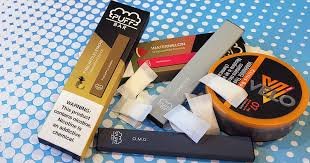The introduction of nicotine alternatives, such as 6-methyl nicotine, in vapes has raised significant concerns among regulatory bodies like the US Food and Drug Administration (FDA) and independent researchers. While these synthetic substances share a chemical structure similar to nicotine, their potency and addictive potential remain subjects of incomplete scientific understanding.
Unlike traditional nicotine, which is heavily regulated under US tobacco and vaping laws, synthetic nicotine analogues like 6-methyl nicotine are not subject to the same regulations. This regulatory gap allows manufacturers to market vapes containing these substances without seeking FDA authorization, presenting challenges for regulatory oversight and consumer protection.
Big tobacco companies, already facing substantial losses in US sales due to unauthorized disposable vapes containing traditional nicotine, have expressed apprehension about the emergence of 6-methyl nicotine. Altria Group, maker of Marlboro cigarettes, highlighted the potential risks posed by these compounds in a letter to the FDA, urging regulatory evaluation and oversight.
However, the FDA’s ability to regulate synthetic nicotine alternatives remains uncertain, with the agency acknowledging the need for further research to assess their health impacts and addictive potential. While some studies suggest that 6-methyl nicotine may be more potent than traditional nicotine, conclusive evidence is lacking.
Manufacturers like Charlie’s Holdings, which produce vapes containing 6-methyl nicotine, emphasize the need for additional research while assuring consumers of their products’ safety. Despite claims of reduced toxicity and harm compared to traditional nicotine, concerns persist regarding the long-term health effects and addictive nature of these synthetic compounds.
International markets, including the United Kingdom, Indonesia, India, and Japan, have also seen the availability of 6-methyl nicotine products. Companies like Aroma King market these products as less harmful and less addictive, citing self-classification and compliance with regulatory standards.
However, questions remain about the safety and regulation of these products, particularly regarding their classification and potential risks to consumers. As research into synthetic nicotine alternatives continues, regulatory agencies and consumers alike face ongoing challenges in ensuring the safety and transparency of vaping products.



